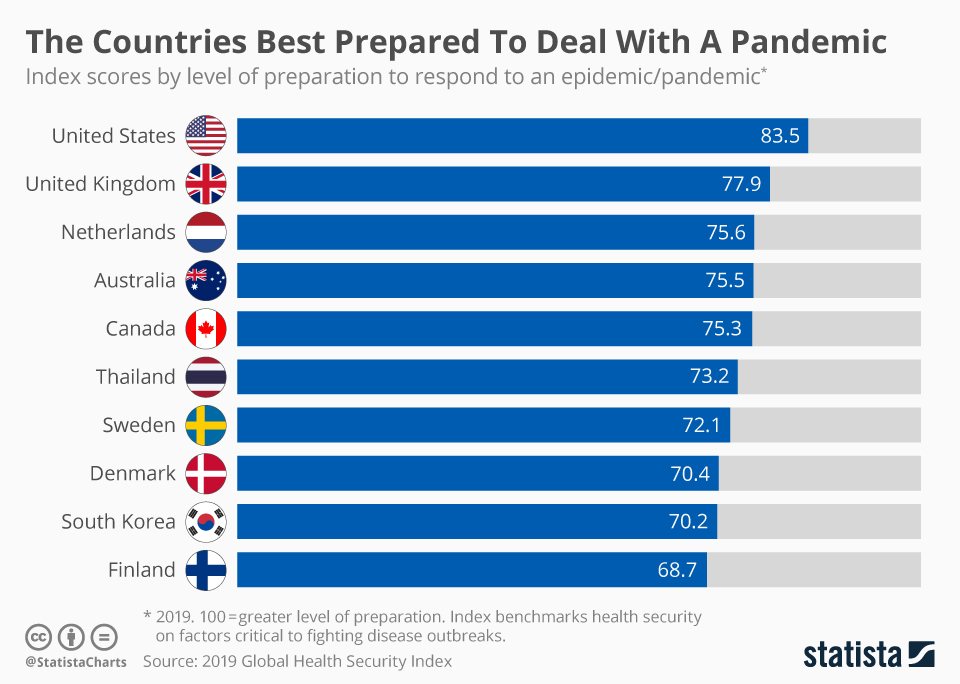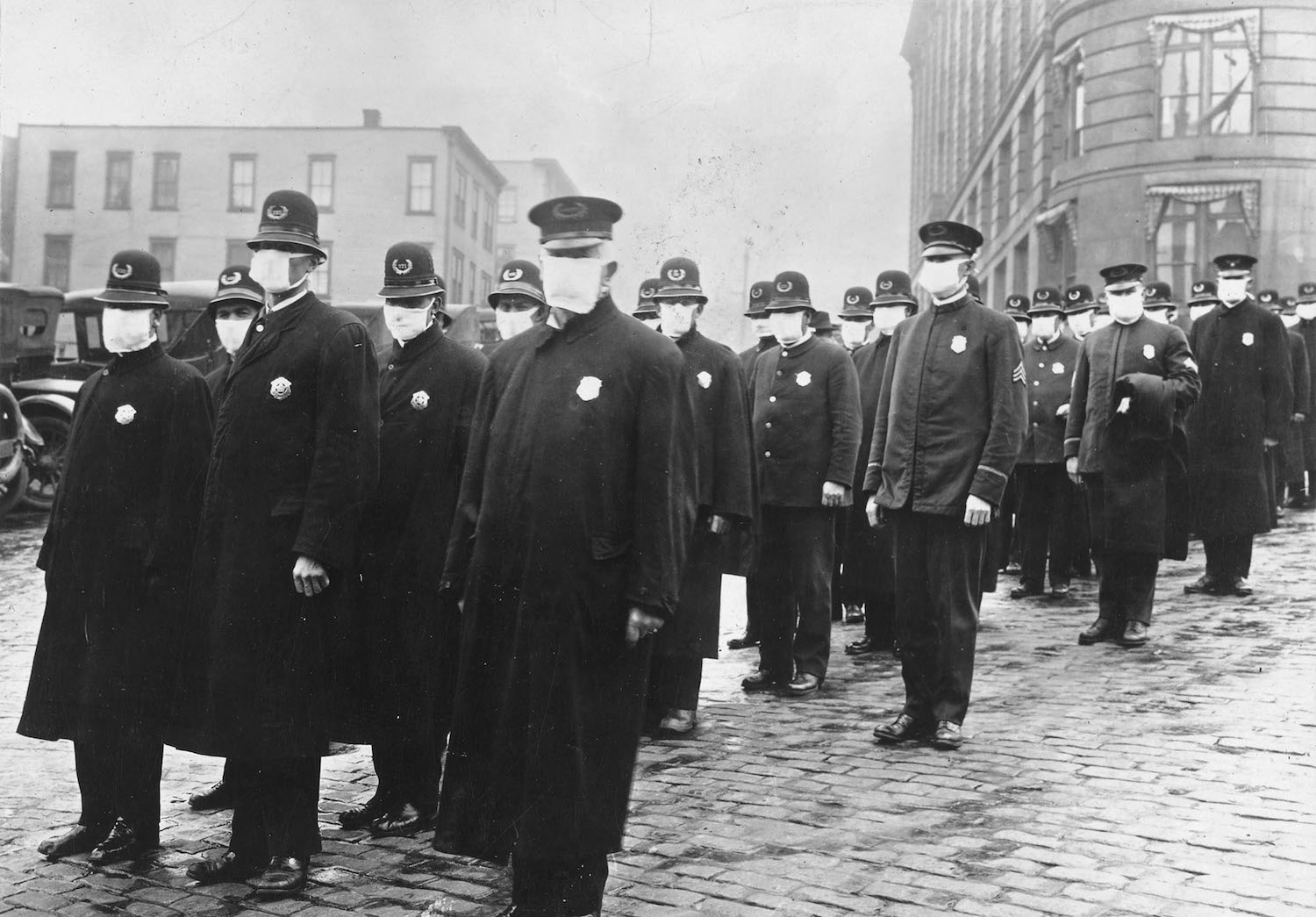Multiple times across history, pandemics killed large proportions of humanity. One of the recent pandemics includes the emergence of the influenza A (H1N1) virus back in 2009. Currently, the world is experiencing a pandemic on HIV and AIDS which attained such status in 2006.
Much of the impact of these pandemics can be neutralized through swift response and preparation. In line with this, which countries are the most prepared? Here’s the top ten list:

This is based on the ranking of 195 countries based on the value of their Global Health Security Index (GHS), a project of the Nuclear Threat Initiative (NTI) and The Johns Hopkins Center for Health Security (JHCHS) made in collaboration with The Economist Intelligence Unit (EIU).
Methodology
In order to come up with the GHS Index, NTI, JHCHS, and the EIU formulated 140 questions used to assess the preparedness of a country when it comes to preventing and mitigating pandemics.
These 140 questions fall into six categories.
From our partners:
- Prevention
- Detection and Reporting
- Rapid Response
- Health System
- Compliance with international norms
- Risk environment, pertaining to a country’s vulnerability to biological threats.
The GHS Index has a value ranging from 0 to 100. The closer the GHS index value of a country is to 100, the better prepared it is in fighting pandemics.
Highlights
Ranked first is the United States, with a GHS Index rating of 83.5. It is followed by the United Kingdom (77.9), the Netherlands (75.6), Australia (75.5), and Canada (75.3).
The global GHS index score is a 40.2, indicating that collectively, international preparedness for pandemics is weak at present.
In their paper, here are some of the findings NTI, JHCHS, and the EIU found which contribute to the overall low preparedness of countries when it comes to pandemics:
- Biosecurity and biosafety are under-prioritized.
- There is a weak connection between health and security-sector actors for outbreak response.
- Little evidence shows that countries have tested important health security capacities and whether or not they would be functional in times of crisis.
- Majority of the countries do not dedicate funding to fill in their gaps in preparedness.
- Majority of countries face major political and security risks that negatively impact the national capability to counter biological threats.
- The foundational health systems essential for pandemic response are weak or non-existent for most countries.
- There is low coordination and poor training among veterinary, wildlife, and public health professionals and policymakers.
Gearing up
NTI, JHCHS, and the EIU recommend that health security preparedness should be placed in top priority when it comes to financing.
Another step they recommended is the creation of new mechanisms in health security preparedness financing which rewards measurable improvements in this sector.
They also prod international leaders to examine the availability of financing in order to respond quickly and sufficiently when outbreaks which can reach the international scale emerge.
Let us not wait to suffer huge losses first before we start preparing for large pandemics. The best time to prepare for sudden disease outbreaks is now.













